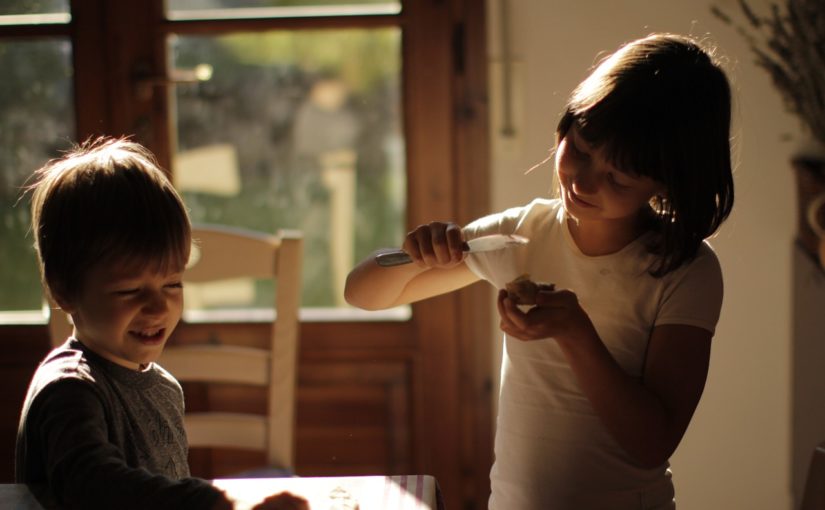Noel Moules writes about a Birmingham-based Peacemeal with children at the centre.
About twelve children between the ages of 5 and 10 years old sat around an extended kitchen table. This was ‘Children’s Table-Talk’ organised by Phoebe and her friends.Her family are part of Peace Church in Birmingham UK, where ‘Table-Talks’ are a commonplace event.
These are gatherings where theological and ethical discussions take place over a meal, sometimes lasting three to four hours. Phoebe told me:
“I didn’t think it was fair, I could never join in so decided to do a kids ‘Table-Talk’ without adults joining in. They take over and it becomes only what adults’ think. It is important for us kids to grow to be totally independent in our thinking”.
Phoebe facilitated two ‘Table-Talks’: the first had the theme of ‘God’ and the second was about ‘Faith’. They have been special occasions. Before each of the three courses – everyone brought food contributions from home – one of the children would introduce their thoughts on a question like, “Who is God? What is God like? How do you believe in God?” or “What is faith? How do we use faith? How do you have faith?”
The quality of the conversation was remarkable with an innocent maturity and razor-sharp honesty. Each child listened respectfully and spoke insightfully.
On both occasions, the contribution from Avani – a Hindu friend – was a highlight. Phoebe had talked about believing in one God who was good and everywhere. Avani replied, “As a Hindu I believe in one God too, but for us in Hinduism different aspects of life are shown though different gods and goddesses. As a girl the female goddesses show me how to be strong and to have faith in my heart.”
Avani continued, “There are two goddesses that are particularly important to me. The first is Lakshmi the goddess of spiritual and material wealth; light, beauty, wisdom, fertility, generosity and courage, all the wives in the stories of Vishnu and Shiva are forms of Lakshmi. The other is Kali, the goddess associated with eternal energy, time and change, who many of us Hindus see as the mother goddess.”
And so the conversations continued between the children around the table. These children became ‘Faith Friends’. Hearing them listening respectfully and making thoughtful comments was a reminder how much every faith has in common with all other faiths – and how children really do have the maturity to engage with important spiritual questions.

